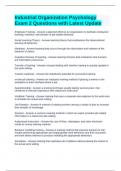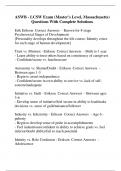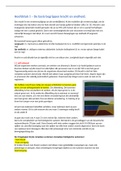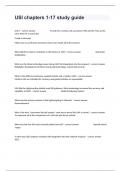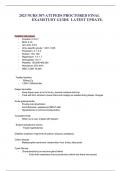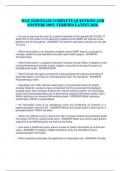Examen
Industrial Organization Psychology Exam 2 Questions with Latest Update
- Cours
- Établissement
Employee Training - Answer-a planned effort by an organization to facilitate employees' learning, retention, and transfer of job-related behavior. Social Learning Theory - Answer-learning theory that emphasizes the observational learning of behaviors. Modeling - Answer-learning that occurs th...
[Montrer plus]
